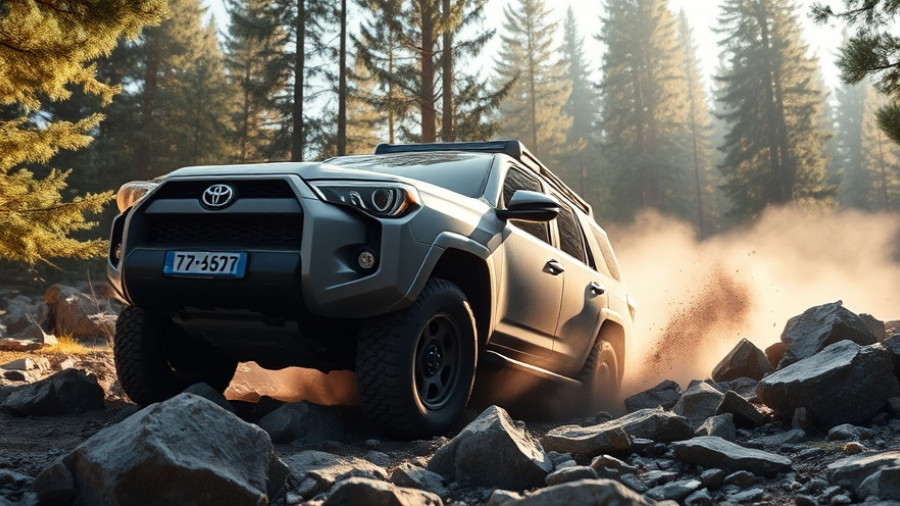
Understanding the 2025 Toyota Highlander and 4Runner: A Family-Friendly Face-Off
As families across America prioritize safety, efficiency, and versatility in their choice of vehicle, the ongoing rivalry between the Toyota Highlander and Toyota 4Runner is heating up. Both SUVs have their merits, carving unique paths through the competitive automotive landscape. This analysis aims to provide a comprehensive comparison, helping prospective buyers make informed decisions let’s dive into the distinctive features that place these vehicles in the spotlight.
Price Comparison: Value for Your Investment
When choosing between the Highlander and 4Runner, understanding the financial implications is crucial. The 2025 Highlander ranges from approximately $40,320 to nearly $55,000, making it an attractive option for those seeking a blend of luxury and affordability. In contrast, the 4Runner starts slightly higher, with prices from $41,270 to $67,400, reflecting its capabilities as a rugged off-road vehicle. Whether you prioritize budget or specialized features will significantly impact your choice.
Performance Specifications: On-Road vs. Off-Road
Performance is a cornerstone of the Highlander vs. 4Runner debate. The Highlander is designed for comfortable on-road driving, equipped with a reliable 2.4-liter gas inline-four engine or a hybrid option that enhances fuel efficiency—a key selling point for families looking to save on long trips. Conversely, the 4Runner showcases its adventurous spirit with a robust chassis suitable for off-road excursions, featuring the same engine but adapted to deliver more torque and power in demanding terrains.
Fuel Efficiency and Reliability Ratings: Long-Term Considerations
Fuel efficiency is a hot topic in today’s eco-conscious society. The Highlander claims an edge here, appealing to families focused on maximizing mileage without compromise. Mid-size SUVs like the Highlander often excel in real-world mpg reviews, while the 4Runner, built for durability, yields a slightly lower fuel economy and is generally regarded as having higher car reliability ratings. When considering long-term costs, these ratings should weigh heavily in your decision-making process.
Safety Features and Ratings: Prioritizing Family Security
Modern parents prioritize safety, and both the Highlander and 4Runner feature advanced safety technologies. Each model includes Toyota’s Safety Sense suite, which boasts adaptive cruise control, lane departure alerts, and pre-collision systems. Their performance in safety tests is notable, with both earning high marks in crash tests, making them top safety rated cars within their class.
Interior Comfort and Technology: Lifestyle Fit
The Highlander offers a more family-oriented interior, featuring a well-designed infotainment system with a large touchscreen, ideal for tech-savvy users. In contrast, the 4Runner leans towards functionality, with easy-to-clean materials and an emphasis on practical layout—great for outdoor activities. Families that prioritize a comfortable, tech-rich cabin may lean towards the Highlander, while those seeking rugged functionality may favor the 4Runner.
Conclusion: Making the Right Choice for Your Family
In conclusion, both the Toyota Highlander and Toyota 4Runner boast numerous strengths. The Highlander excels with efficiency and comfort tailored for families, whereas the 4Runner shines through its off-road capabilities and robust design. By weighing the discussed elements, buyers can align their choice with their lifestyle needs. Take the time to assess what features matter most to your family, and remember that the right SUV isn't just about specifications; it’s about a lifestyle fit.
 Add Row
Add Row  Add
Add 




Write A Comment